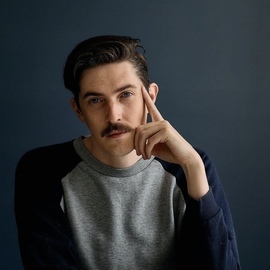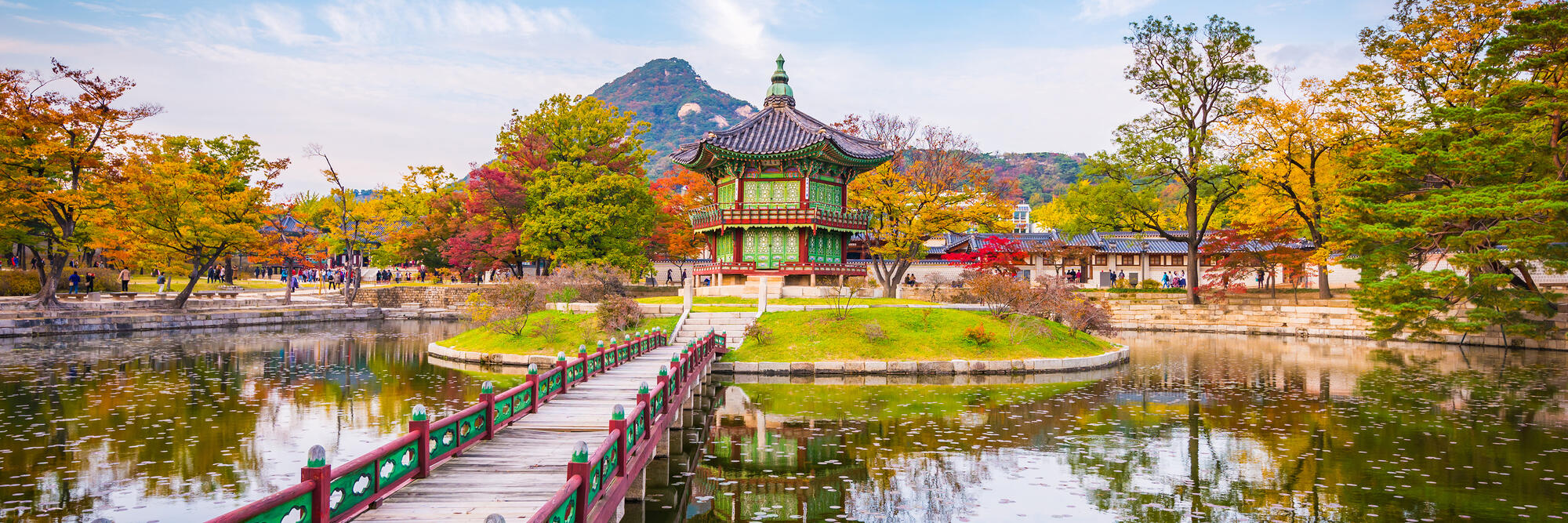Adam is a British actor and model living in Seoul, South Korea. He moved from England in 2012 to explore a new culture and expand his professional horizons. To find out more about Adam and his experiences in the South Korean capital, check out his Instagram or his IMDb profile.
About Adam
Q: Where are you originally from?
A: England.
Q: What country and city did you move to?
A: Seoul, South Korea.
Q: When did you move?
A: 2012.
Q: Is this your first expat experience?
A: Yes.
Q: Did you move here alone or with a spouse/partner or family?
A: Alone.
Q: Reason for moving?
A: I wanted a big cultural change.
Living in Seoul
Q: What do you enjoy most about Seoul and South Korea in general?
A: I love Seoul’s energy – it’s a vibrant, ever-moving city where there’s always something interesting around the corner. I also really enjoy how safe it feels here and how easy it is to explore new neighbourhoods, cafés, or galleries on a whim.
Q: Have you had any low points? What do you miss most about the UK?
A: Definitely. Being away from family and old friends can weigh on you, especially around the holidays. I also miss the dry humour and pub culture back home – there’s nothing quite like it.
Q: What misconceptions about Seoul, if any, have you learned were not true?
A: A lot of people think Koreans are very reserved, but I’ve found them incredibly warm and curious once you break the initial ice. Also, not everyone is obsessed with K-pop!
Q: What are the biggest adjustments you had to make when settling into expat life in Seoul? Did you experience culture shock at all?
A: The language barrier is the obvious one. Even now, some bureaucratic tasks can be intimidating. I wouldn’t say I had heavy culture shock, but small differences – like indirect communication styles or the hierarchy in social settings – took a while to get used to.
Q: What are your favourite things to do on the weekend? Any particular places or experiences you’d recommend to fellow expats?
A: I love going to improv shows or performing myself, wandering flea markets, or just grabbing a coffee and people-watching in places like Seongsu or Ikseon-dong. I’d recommend checking out local theatre or live gigs – Seoul has a great indie scene.
Q: What’s the cost of living in Seoul compared to the UK? Are there specific things that are especially expensive or cheap there?
A: Seoul can be pricey for housing, and imported goods are often more expensive. But eating out is surprisingly affordable, and public transport is fantastic value. Overall, I’d say it balances out.
Q: What’s public transport like in Seoul and across South Korea?
A: Honestly, it’s one of the best in the world. Trains are clean, punctual, and cheap. You can cross the entire city for a couple of quid. Intercity travel is also brilliant – KTX trains make day trips around Korea a breeze.
Q: What do you think of the healthcare available in Seoul? What should expats expect from local doctors and hospitals?
A: Healthcare here is high quality, efficient, and relatively affordable, especially compared to the UK’s long waits. Many hospitals have international clinics with English-speaking staff, which helps a lot.
Q: What’s the standard of housing like in Seoul? What different options are available?
A: Housing varies widely – from modern high-rise apartments with top security to smaller officetels. Most places come unfurnished, which was new for me. Space can be tight, but everything’s very well maintained.
Q: Are there any areas or suburbs you’d recommend for expats to live in?
A: I like places that have a bit of charm and aren’t just expat hubs – areas like Mangwon, Yeonnam, or parts of Seongsu have a nice community feel, good food, and easy access to the city centre.
Meeting people and making friends in Seoul, South Korea
Q: Was meeting people and making friends in Seoul easy? How did you go about meeting new people?
A: It wasn’t instant, but I found my circles through improv, acting projects, and just saying yes to invites. Being open to trying new things helped a lot – whether that was grabbing a last-minute coffee or jumping into a random workshop.
Q: Have you made friends with locals, or do you mix mainly with other expats? What advice would you give to new expats looking to make friends with the locals?
A: It’s a bit of both. I’ve made great local friends through the arts scene and shared work, which naturally breaks down barriers. My best advice is: don’t be afraid to look awkward. Learn a bit of Korean, show genuine interest, and accept that it might take time – but most people are happy to meet someone curious about their culture.
Working in Seoul, South Korea
Q: What is the economic climate in Seoul like?
A: Seoul feels very dynamic – there’s always construction, new businesses popping up, and a sense of constant growth. But it can also be competitive, especially in industries like entertainment.
Q: How does the work culture in Seoul differ from that in the UK?
A: There’s more hierarchy here, and a stronger emphasis on group harmony. You also see longer hours in many industries. Coming from the UK, I had to adjust to being more deferential and reading between the lines a bit more.
Q: How did you get started in the Korean entertainment industry, and what have been some highlights of your career here?
A: I started by taking on small roles and building relationships in the industry – you quickly learn how tight-knit and fast-moving it is. Some highlights for me have been working on Korean dramas, appearing in commercials alongside top K-pop groups, and being part of music videos that reached audiences worldwide. Each project’s been a chance to push myself creatively and grow my profile in a market I really respect.
Q: What unique perspective do you bring to your work as an actor and model in Korea?
A: I think being a British actor in Korea gives me a fresh lens – I bring a bit of European sensibility, dry humour, and a different energy on set that directors often tap into. At the same time, I’ve made a real effort to adapt to Korean working styles and cultural nuances, so it’s a mix that feels authentic and collaborative.
Final thoughts
Q: Any advice you’d like to offer to new arrivals in Seoul?
A: Be patient with yourself – settling in takes time. Say yes to invitations, try to learn some of the language (even if you butcher it at first), and don’t stress about being a bit awkward. It’s all part of the adventure.
►Interviewed in June 2025



